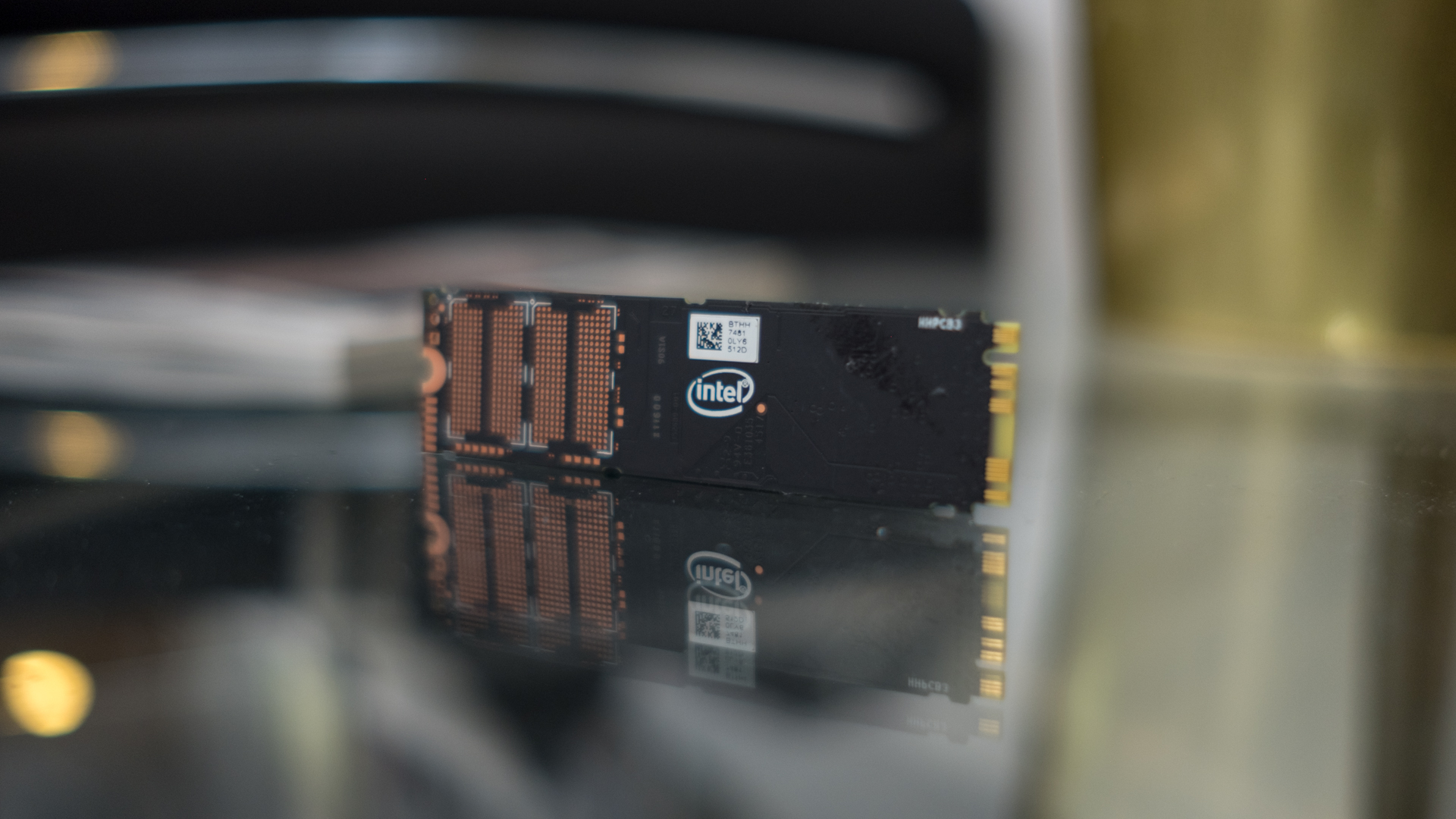Intel 760p Series SSD
Our biggest pet peeve with computing nowadays – aside from the price of graphics cards being too damn high, thanks to bitcoin mining – is the lack of affordable and fast NVMe solid-state storage. Thankfully, that’s starting to change this year, and Intel’s new 760p Series SSD has us absolutely giddy.
Built upon Intel’s new 64-layer 3D NAND technology, the 760p Series not only doubles the speed of its previous consumer SSDs, it’s also nearly as affordable. Starting at $74 (about £50, AU$90) for an 128GB drive, $109 (about £80, AU$140) for 256GB and $199 (about £140, AU$250) for 512GB – which we tested – these are some of the cheapest NVMe drives you’re going to find this year.

Features
Again, Intel’s 760p Series SSDs use the company’s new 64-layer 3D NAND technology that’s twice as dense as the company’s 32-layer NAND used on the previous generation of Intel 600p Series SSDs. Thanks to this doubling of density, Intel promises its new drives are nearly twice as fast and more power efficient than before.
The 512GB capacity 760p Series is rated for 3,230 MB/s sequential read and 1,625 MB/s sequential write speeds. That’s a significant increase from the 512GB Intel SSD 600p’s 1,775 MB/s and 560 MB/s sequential read and write speeds, respectively.
It’s also enough speed to give Samsung’s almost undisputed 960 Evo SSDs reason to worry. Though Samsung’s NVMe drive still pulls slightly ahead with 3,200 MB/s and 1,800 MB/s sequential read and write speeds, respectively, it's also more expensive with a 500GB capacity unit priced at $229 (£223, AU$315).

Performance
In our testing, the 512GB Intel 760p Series SSD peaked at 3,056.6 MB/s and 1,606.6 MB/s sequential read and write speeds, respectively. Though it doesn’t completely hit on the promised speeds, we expect performance will only get better with further driver updates.
Comparatively, the Samsung 960 Evo is still a quicker with 3394.9 MB/s and 1949.3 MB/s sequential read and write speeds, respectively. But ultimately, you’re also going to be paying a higher premium for that increased speed
What’s more, the Intel 760p Series SSD offers more than enough high-speed read performance to make it a solid storage device for gaming. Asset-heavy, open-world games like Assassin’s Creed Origins loaded like a dream while also giving us incredibly fast boot times to get into Windows 10.
The drive’s slightly sluggish write speeds might not work for impatient video editors, so we would suggest the Samsung 960 Pro for its much-faster 2,100 MB/s sequential write capabilities.

Final verdict
Intel 760p Series SSDs are a serious step up for the brand’s NVMe capable solid-state drives. It’s not often we see storage take a leap in speed this significant.
What’s more, it’s just priced extremely affordably.
A 256GB SSD with PCIe Gen 3.0 x 4 speed for $109 (about £80, AU$140) is almost a no-brainer for the modern PC builder, and the $199 (about £140, AU$250) for the 512GB unit we reviewed isn’t a far stretch either. We just hope this pricing trend continues to an 1TB model that costs well under than 400 smackers.
0 comments:
Post a Comment